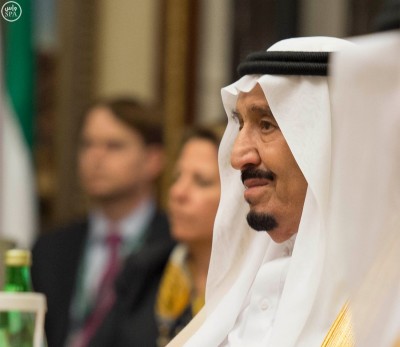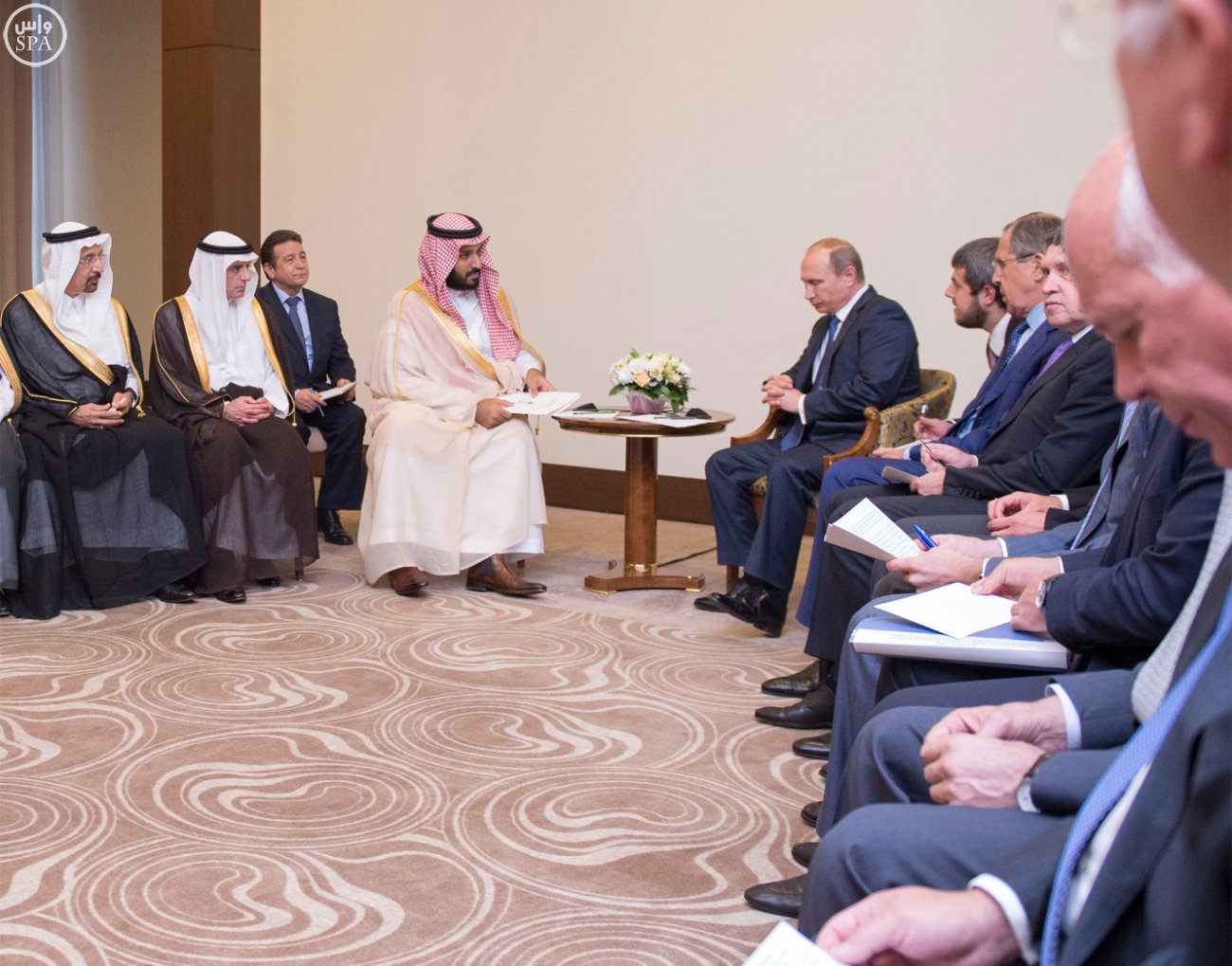Saudi-Russia ties continue to warm ahead of King Salman’s visit as the Kingdom looks to expand bi-lateral investment opportunities, according to reports.
Saudi Arabia and Russia are the two biggest energy players, producing almost a quarter of the world’s oil between them. As the de facto leader of OPEC, Saudi Arabia has forged a working partnership with Russia to implement cuts to oil output in hopes of raising crude prices on international indices. Those cuts have contributed to some short-term economic pain for Saudi Arabia, but are also working – oil has edged higher following the output cuts.
Russia’s energy ministry said in a statement in May that it would do “whatever it takes to achieve the desired goal of stabilizing the market” after it agreed to extend the first round of production cuts for another 9 months.

King Salman will visit Russia on Thursday for a state visit.
Supply cuts have helped prices recover from a low of $26 a barrel early in 2017. The WTI and Brent Crude indices were both over $50 a barrel as of the time of publication.
But King Salman’s visit signals more than just a Saudi-Russia partnership to raise crude prices globally.
Bloomberg reports today that Saudi Arabia is looking at “unprecedented deals” to acquire oil and gas assets in Russia. The Financial Times said that Saudi Arabian and Russian companies will sign investment deals worth more than $3 billion this week, including a $1 billion fund to invest in energy projects.
“The bonhomie between the world’s two biggest energy players is about to get closer,” the FT writes.
The Saudi-Russia relationship might be more of a result of bi-lateral pragmatism than a genuine embrace. The head of commodities and Asia-Pacific currencies at UBS’s wealth-management unit in Hong Kong said that OPEC and Russia “need to extend their oil-production cuts for at least three more months to keep crude prices at current levels….Falling back to the old scheme with decent U.S. shale-supply growth expected for next year is not an option.”
Unlike the U.S.-Saudi relationship, the Saudi-Russia thaw does not extend to security and diplomacy, as the two countries find themselves at odds over the conflict in Syria, Iran’s regional influence and other matters.
But the Saudi-Russia energy “bromance” is real, and its common enemy is U.S. shale, which has proven resilient to low prices and a perpetual thorn in the side of OPEC and Russia’s efforts to raise oil prices.









